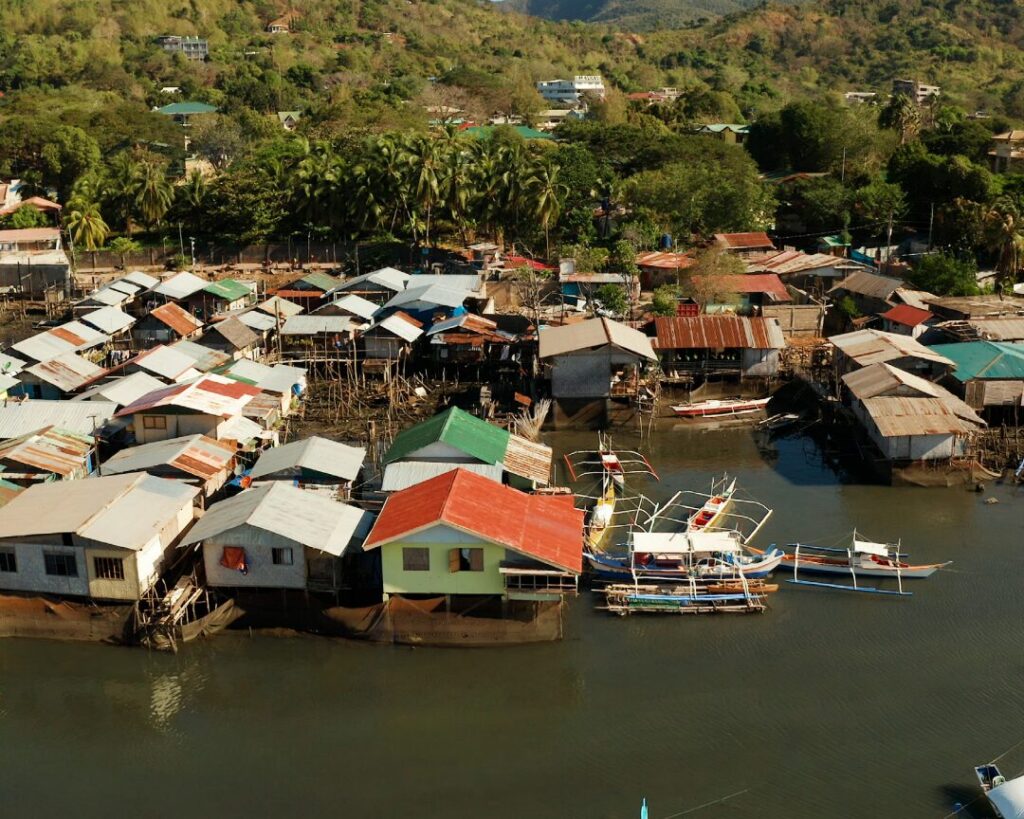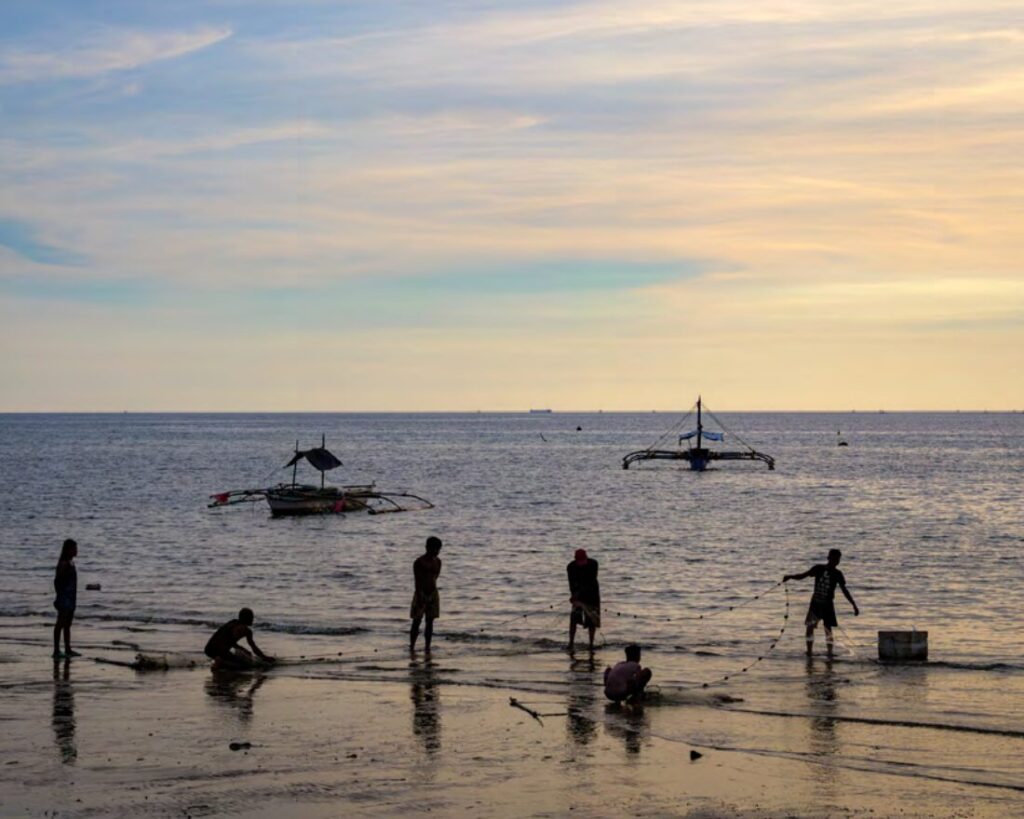Beyond Bang for the Buck: the Business Case for Financial Inclusion to Scale EbA Solutions in Philippine Coastal Communities
Project Information
Coastal communities and Small-Scale Fisheries (SSF) are exceptionally vulnerable to climate change. Integrating Ecosystem-based Adaptation (EbA) into SSF can significantly enhance communities’ resilience and improve coastal ecosystem health. Yet, for EbA approaches to be effective, a supportive socio-economic environment and sustainable financing are vital. Through the lens of Rare’s Managed Access & Reserve (MA+R) model, the project developed and piloted a replicable financial model for Philippine municipalities that quantifies the costs of sustainable fisheries management that includes EbA. The project also investigated and validated the contribution of financial inclusion to socio-economic resilience and the adoption of EbA approaches. Based on these insights, the project partners provided targeted capacity building and training to local leaders, equipping them with skills needed to understand and articulate the costs of sustainable fisheries management that include EbA elements.
As a result of these engagements, five Local Government Units in Siargao have taken concrete steps to incorporate EbA funding priorities into upcoming budget processes, setting the stage for adoption in the next budget cycle. Furthermore, local partner governments co-developed a Scaling Strategy that outlines key investment gaps, institutional constraints and the support needed to embed the project’s financial model into local budgeting cycles. The document offers a practical roadmap for national and provincial stakeholders to scale structured fisheries budgeting and integrate EbA into local government systems across the Philippines. Following its launch in May 2025, representatives from national government entities, including the Department of the Interior and Local Government (DILG), the Department of Environment and Natural Resources (DENR), the Implementing Rules and Regulations (IRR) for the Philippine Ecosystem and Natural Capital Accounting System (PENCAS) Law, the Department of Agriculture – Bureau of Fisheries and Aquatic Resources (DA-BFAR), expressed interest in leveraging the financial model and scaling strategies for their respective working groups.
Key project activities included:
- Financial Inclusion Research: In collaboration with the Center for Financial Inclusion, Rare studied how access to savings, insurance, and credit affects the ability of small-scale fishers to withstand shocks and stay committed to sustainable fishing practices. The research found that financial inclusion plays a direct role in conservation compliance—helping fishers remain aligned with Managed Access with Reserves (MA+R) rules even after extreme events like Typhoon Odette. The research also surfaced persistent barriers: informal lending can drive overfishing; public insurance is often underutilized due to low awareness and trust; and savings groups, while effective in building financial literacy, lack the capital to protect against large shocks. These findings point to the need for integrated financial products that are both climate-responsive and conservation-aligned.
- Budgeting Tool for MA+R Implementation: Alongside partner Levoca, Rare developed an Excel-based financial model to help Local Government Units (LGUs) cost the implementation of Managed Access with Reserves (MA+R). Aligned with the Marine Protected Area Management Effectiveness Assessment Tool (MEAT), the tool was tested using real LGU data across five municipalities. The results were striking: the estimated cost of effective MA+R management is PHP 10–12 million per year, yet most LGUs were allocating only PHP 400,000 annually—just 3–4% of what’s needed. With total LGU budgets ranging from PHP 15–25 million, this underinvestment had been largely invisible until the tool quantified it.
Project Achievements
1. Demonstrated the Role of Financial Inclusion in Strengthening Climate and Conservation Resilience: Research, done in partnership with the Center for Financial Inclusion, showed that communities with higher formal financial inclusion and access to funds were more resilient after typhoon Odette battered the island. Also, and most importantly, those communities did not have to open the fishery which is managed following the Managed access + reserves (MA+R) approach implemented by Rare. Communities with lesser degrees of financial inclusion had to open the fishery after the typhoon, compromising years of conservation efforts.
2. Raised Awareness on the Intersection of Financial Inclusion and Ecosystems Adaptation: The research was shared with over 1,000 people on a live seminar during the Financial Inclusion Week sponsored by ACCION. In addition, over 300 downloads have been accounted for. This research continues to bring information and concrete steps to the intersection of ecosystems adaptation and financial inclusion.
3. Developed a Financial Model to Enable MA+R Implementation: A financial model for LGUs in Siargao was developed to estimate the budget to implement the MA+R approach. Preliminary data shows that LGUs are critically underfunded, about 3-4% of the budget needed is allocated by government funds, and the rest is funded by NGOs.
4. Catalysed Increased Public Investment and Policy Uptake: LGUs took formal steps to increase investment, including new ordinances and signed commitments. National agencies—including DILG, DENR, and DA-BFAR—also expressed strong interest in mainstreaming the model into policy platforms, such as local planning tools, training modules, and fisheries management templates.
5. Adapted the Financial Model for Community Fisheries Management in Mozambique: The financial model was adapted to the local context in Mozambique. Initial findings include the lack of previous budgeting process by local fishing councils that were unaware of the cost of implementing the MA+R approach and rely solely on government reimbursement from fishing licenses fees. The model was also simplified in order to start training and building accounting capabilities at the local fishing councils, which are responsible for protecting and managing their coastal fisheries.
Project Status
Completed – 30 June 2025
Key Metrics
Implemented By:
Rare, with Accion International & Levoca

Rare and Accion
Financial inclusion to support EbA adaptation for small scale fisheries in the Philippines

